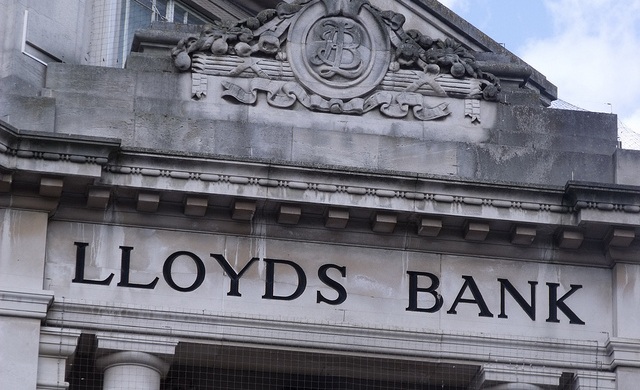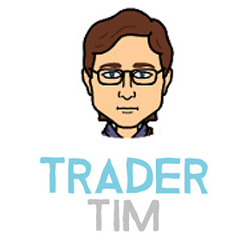London stocks on the FTSE 100 tumbled in early trade on Monday following whopping losses in Asia, as the Trump tariff selloff intensified.
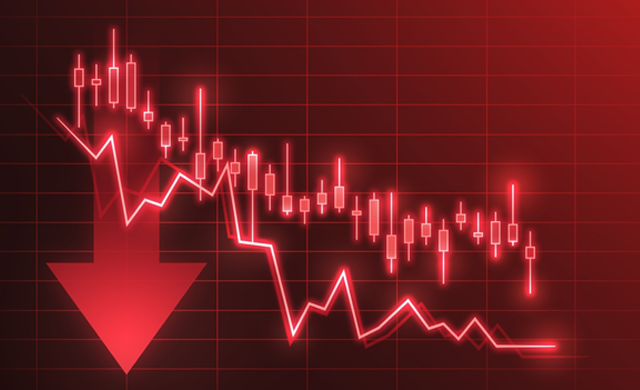
At 0840 BST, the FTSE 100 was down 5.5% at 7,615.32, having fallen to as low as 7,544.83. It was a veritable blood bath in equity markets, with the benchmark Stoxx Europe 600 index down 6%, Germany’s DAX 7% lower and France’s CAC 40 off 5.9%.
Speaking with reporters on board Air Force One on Sunday about recent market volatility, Trump said: “I don’t want anything to go down, but sometimes you have to take medicine to fix something and we have such a horrible – we have been treated so badly by other countries because we had stupid leadership that allowed this to happen.”
Susannah Streeter, head of money and markets at Hargreaves Lansdown, said: “The big flight to cash continues as investors seek a shelter for their money amid the tariff storm. Trump has dashed hopes for an easing of policy by calling tariffs ‘medicine’ and investors are absorbing the implications of this bitter pill for the global economy.
“The FTSE 100 has opened deep in the red, falling more than 5% in early trade, as pessimism spreads about the outlook for world trade. While the biggest fall this century was the pandemic induced 10.8% drop on 12 March 2020, the losses in recent days are steep, an indication of the fear spreading about the implications of the White House approach.
“The shocking turn of US policy and China’s determined retaliatory action led to a rout in Asian markets, with Hong Kong’s Hang Seng and Japan’s Nikkei nursing painful losses. Banking shares experienced double digit declines during the session. Banks are seen as barometers for economic health, and given the steep losses, red lights are flashing about a looming global recession. These warnings are also showing up in the bond markets. Falling treasury yields are an indication that the chance of recession is increasingly being priced in. Oil prices are also continuing to slide, as traders assess that demand for energy will drop back sharply, given the ominous signs for global trade.
“The tech-stock turmoil looks set to rampage for another day on Wall Street. The bears are already out in force across the Nasdaq, and futures indicate another steep fall for the index. The halcyon days of cheap manufacturing and easy markets appear to be over. With, as yet, no indications of a rolling back of tariffs, investors are reassessing earnings estimates denting valuations.
“This will have a knock-on effect on US consumer confidence which has already fallen sharply. Given so many Americans invest in the stock market, which acts as a safety blanket for life’s expenses, the stock market rout will dent wealth perceptions, which may make a downturn even deeper.”
With stocks a sea of red yet again, the latest house price data from Halifax came and went unnoticed.
It showed that house prices fell again in March as demand returned to normal after a rush to beat the stamp duty change.
Prices declined by 0.5% on the month following a 0.2% drop in February. On the year, house prices were 2.8% higher in March, unchanged on the previous month.
The average price of a home stood at £296,699 in March, down from £298,274 in February.
Amanda Bryden, head of mortgages at Halifax, said: “House prices rose in January as buyers rushed to beat the March stamp duty deadline. However, with those deals now completing, demand is returning to normal and new applications slowing. Our customers completed more house sales in March than in January and February combined, including the busiest single day on record. Following this burst of activity, house prices, which remain near record highs, unsurprisingly fell back last month.
“Looking ahead, potential buyers still face challenges from the new normal of higher borrowing costs, a limited supply of available properties to choose from, and an uncertain economic outlook.
“However, with further base rate cuts anticipated alongside positive wage growth, mortgage affordability should continue to improve gradually, and therefore we still expect a modest rise in house prices this year.”
In equity markets, heavy losses were across the board, with only Royal Mail parent IDS managing to pop its head above water.
Top 10 FTSE 100 Risers
| Sponsored by Plus500 |
|
| # | Name | Change Pct | Change | Cur Price | |
|---|---|---|---|---|---|
| 1 |  |
Gresham House Renewable Energy Vct 1 Plc | +0.00% | +0.00 | 35.00 |
| 2 |  |
Gen.acc.8se.pf | +0.00% | +0.00 | 151.00 |
| 3 |  |
Bp 9% 2nd Prf | +0.00% | +0.00 | 155.50 |
| 4 |  |
Sant Uk.8fepf | +0.00% | +0.00 | 137.00 |
Top 10 FTSE 100 Fallers
| Sponsored by Plus500 |
|
| # | Name | Change Pct | Change | Cur Price | |
|---|---|---|---|---|---|
| 1 |  |
Fresnillo | -12.85% | -117.00 | 793.50 |
| 2 |  |
Airtel Africa Plc | -11.85% | -19.23 | 143.00 |
| 3 | 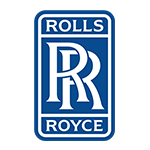 |
Rolls-royce | -10.37% | -70.40 | 608.40 |
| 4 | 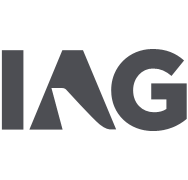 |
International Consolidated Airlines Group S.a. | -8.90% | -21.30 | 218.00 |
| 5 |  |
Relx Plc | -8.87% | -351.00 | 3,607.00 |
| 6 |  |
Shell Plc | -8.02% | -199.75 | 2,292.00 |
| 7 |  |
Melrose Industries Plc | -7.31% | -30.80 | 390.30 |
| 8 | 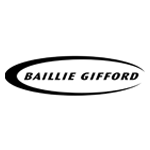 |
Scottish Mortgage Investment Trust Plc | -7.25% | -61.90 | 792.20 |
| 9 | 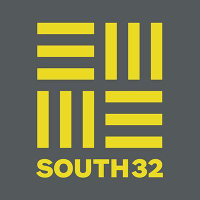 |
South32 Limited | -7.12% | -9.20 | 120.00 |
| 10 |  |
Lloyds Banking Group Plc | -7.00% | -4.80 | 63.82 |
US close: Stocks sink to 11-month low as tariff-related sell-off continues
US stocks plummeted again on Friday, sending markets to their lowest levels in nearly a year, after China retaliated against Donald Trump’s tariffs plans in the latest escalation of a trade war that has already hammered investor sentiment.
The Dow tumbled 5.5% to 38,314.86 while the S&P 500 sank 6.0% to 5,074.08, with both indices hitting their lowest levels since May 2024. The Nasdaq, meanwhile, dropped 5.8% to 15,587.79, its lowest close since April 2024.
Dan Coatsworth, investment analyst at AJ Bell, said Friday’s rout capped off a “horrible week for financial markets”, estimating that around $5trn has been wiped off global stock markets since Wednesday’s close.
Over the past two days combined, the Dow, S&P 500 and Nasdaq have shed 9.3%, 10.5% and 11.4% respectively.
China on Friday hit back at the US with a 34% levy on all American-made products, matching tariffs imposed on Chinese goods coming into the States. Beijing also added a number of US firms to its so-called “unreliable entities list”, asserting that the companies in question had broken market rules or contractual commitments, and launched an antitrust investigation into chemicals giant DuPont.
However, Trump seemingly ignored Wall Street’s woes, stating that his “policies will never change” as he urged investors to pour more cash into the US.
“The escalation in tariffs is bad for US companies who buy goods from China, and vice versa, because their costs will go up. It’s also bad for the world in general as we now have a repeat of the heightened geopolitical tensions between the US and China which dominated Trump’s first term in office,” Coatsworth said.
Comments from Jerome Powell were also making headlines after the Federal Reserve chair said that the US tariffs were “significantly larger than expected”, as he warned that downside risks to the economy had increased.
“While tariffs are highly likely to generate at least a temporary rise in inflation, it is also possible that the effects could be more persistent,” Powell said. Up until Friday, Powell had characterised the likely effects of tariffs on prices as transitory.
Meanwhile, in a note late on Thursday, JPMorgan analysts raised the estimates for a probability of a recession to 60%, up from 40% before the tariffs announcement. “These policies, if sustained, would likely push the US and possibly global economy into recession this year,” the bank said.
Non-farm payrolls largely ignored
Even the monthly non-farm payrolls report from the Department of Labor failed to lift the mood, with market participants firmly focused on tariff-related uncertainty, despite the US economy adding significantly more jobs than expected last month.
Non-farm payrolls increased by 228,000 in March, well ahead of the 135,000 increase expected by economists. However, payrolls data for the previous two months were revised down by a combined 48,000.
Meanwhile, average hourly earnings rose at a month-on-month pace of 0.3%, whilst the rate of unemployment ticked up by a tenth of a percentage point to 4.2%, both as expected.
Market movers
Multinationals with large exposure to China were notable fallers of the day, such as Apple, Tesla and Nvidia. For Apple specifically, 80% of its production capacity is thought to come from China.
Major banking names like Morgan Stanley, Goldman Sachs, Citigroup, and JPMorgan Chase were also dropping on the back of recessionary fears. Economic concerns were also hitting manufacturing names like Deere, AGCO and Caterpillar.
Brookfield fell sharply after the infrastructure investor announced the acquisition of the Colonial Pipeline, buying out all five co-owners of the largest fuel transportation system in the US.
On the Dow, just one of its 30 constituents – Nike – finished in positive territory, bouncing back after heavy losses on Thursday.
Monday newspaper round-up: Companies House, supermarkets, UK economy
The UK government agency responsible for overseeing a national register of companies has collected just £1,250 in fines after being given new powers to crack down on corruption, it has emerged. Companies House is implementing a series of reforms, amid embarrassing revelations about fraudsters and jokers signing up to the corporate register with names such as “Darth Vader” and “Santa Claus”. – Guardian
The former chief executive of Metro Bank says he has been made “untouchable”, advised to move to Australia and even had trouble opening bank accounts after the UK regulator accused him of misleading investors over a £900m accounting blunder. Craig Donaldson, who resigned in 2019, told the upper tribunal in London that both his career and personal finances had suffered as a result of the Financial Conduct Authority’s (FCA) 2022 ruling. – Guardian
Donald Trump’s finance chief has rejected fears of a US recession despite the president’s trade war sparking a $6 trillion (£4.7 trillion) stock market collapse. Scott Bessent, the treasury secretary, said on Sunday there was “no reason” to expect a downturn in America, claiming that the economy will remain buoyant thanks to strong job numbers, low borrowing rates and falling oil prices. That is despite mounting fears over Mr Trump’s tariffs, which have upended global trade and rattled global stock markets. – Telegraph
Britain’s biggest supermarkets are poised to win fresh powers to open more stores in areas dominated by Aldi and Lidl as officials consider slapping new restrictions on the German discounters. The Competition and Markets Authority (CMA), the UK’s monopoly regulator, is understood to be reviewing the rules that restrict major supermarkets from blocking their rivals from opening stores nearby. – Telegraph
The UK economy faces a “material hit” from President Trump’s tariffs, which threaten to rupture global trade, amplifying the risk of further tax rises and spending cuts by Rachel Reeves, forecasters said on Monday. Growth is on track to slow to just 0.8 per cent this year and next, according to researchers at the consultancy KPMG, as Trump’s shift towards a protectionist trade policy “undermines” the UK economy. KPMG previously thought that the economy would expand by 1.7 per cent this year and 1.4 per cent next year, compared with 1.1 per cent in 2024. – The Times


 Hot Features
Hot Features




